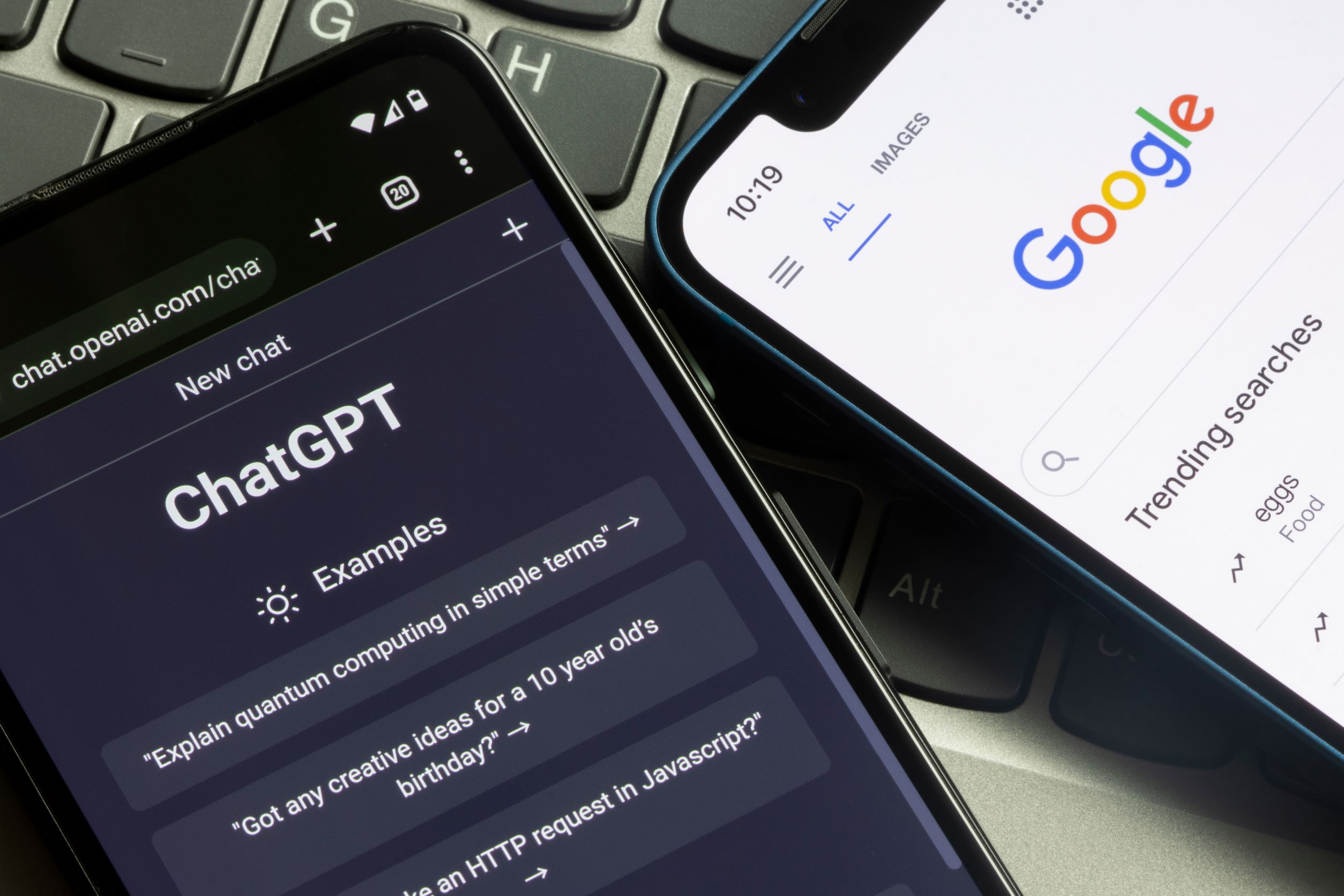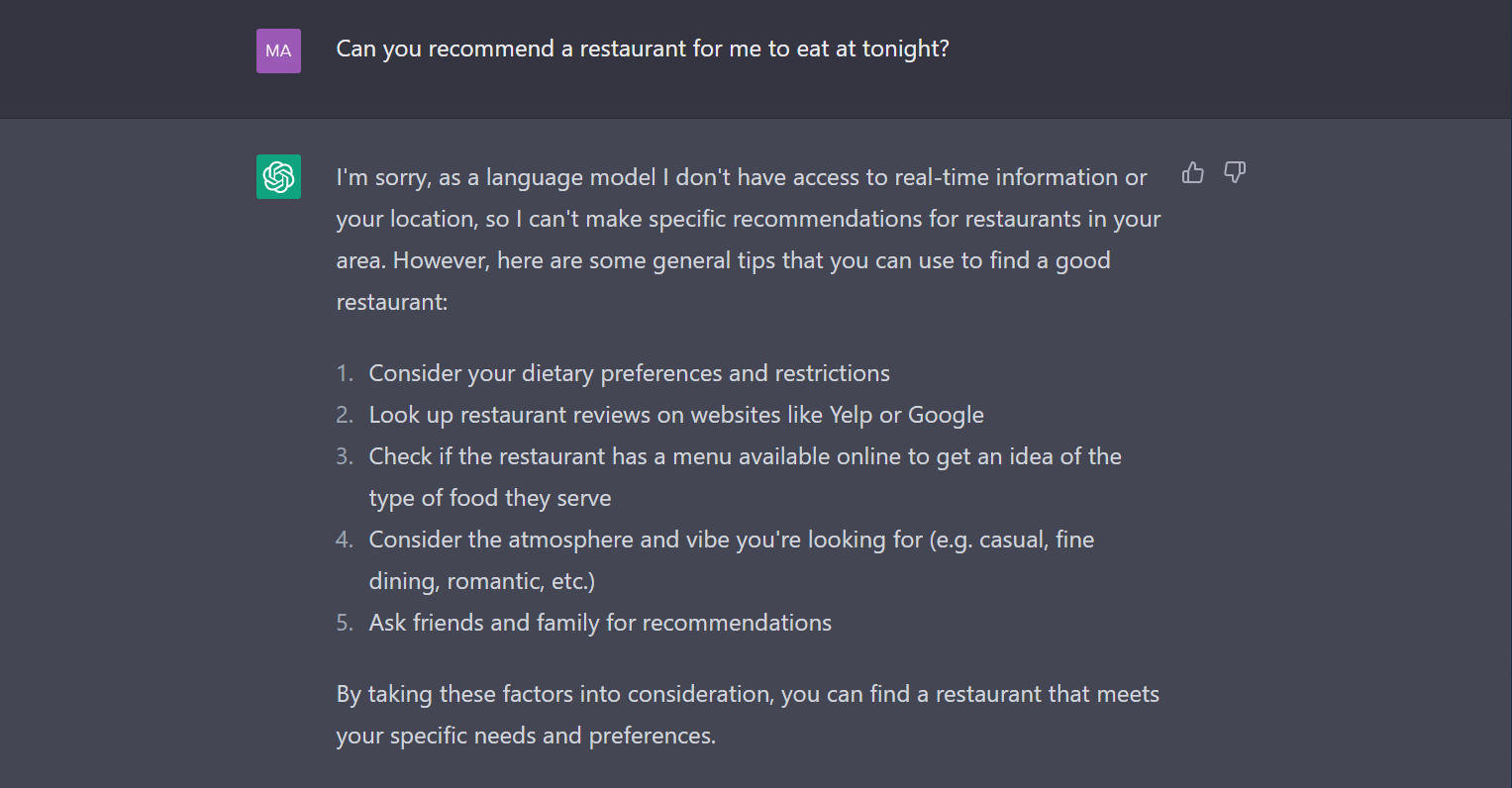ChatGPT Plus is here — and it has Google in its sights
OpenAI announces a $20 a month subscription plan for the popular AI, ChatGPT

There have been rumors of a “Professional Plan” ChatGPT for a while now, with one user, Zahid Khawaja, even showing off the capabilities of this premium version of the chatbot AI on Twitter. But now it’s official — and it’s called ChatGPT Plus.
In a blog post today, ChatGPT creator OpenAI confirmed that it will now offer a paid subscription version of the popular chatbot for $20 a month. ChatGPT Plus will only be available in the U.S. for now, with plans to expand in the future. To subscribe to the premium version of ChatGPT, you will need to join the waitlist and wait for OpenAI to offer you a subscription.
Here's how ChatGPT Pro works! A lot of users were asking me for proof, so I decided to make a video. pic.twitter.com/QYNn3pRnxIJanuary 21, 2023
The “Professional Plan” appears to have been the precursor to the new ChatGPT Plus subscription. In his tweet, Khawaja showed screen capture footage of Open AI promising Pro users that ChatGPT would be, “Available when demand is high,” have “Faster response speed,” and provide “Priority access to new features.” OpenAI promised these same perks nearly word for word in its blog post announcing ChatGPT Plus.
OpenAI will be keeping the free version of ChatGPT that it launched as a research preview available to users who do not have ChatGPT Plus, though it is unclear if performance will deteriorate now that Plus subscribers need to be prioritized by the AI.
ChatGPT Plus: How it could disrupt Google’s search business
This news comes on the heels of Gmail creator Paul Buchheit tweeting, “Google may be only a year or two away from total disruption. AI will eliminate the Search Engine Result Page, which is where they make most of their money.” Given that OpenAI also announced plans for a ChatGPT API waitlist), lower-cost plans, business plans, and data packs, it’s clear that the software developer has its sights set on ChatGPT becoming a go-to resource.
Google may be only a year or two away from total disruption. AI will eliminate the Search Engine Result Page, which is where they make most of their money.Even if they catch up on AI, they can't fully deploy it without destroying the most valuable part of their business! https://t.co/jtq25LXdkjDecember 1, 2022
But can it really destroy Google’s business model in just two years? While Buccheit’s comments can appear hyperbolic, there could be some substance to them. Buccheit believes that ChatGPT and AI can erode Google Search’s dominance in the market, and even the need for a search engine results page entirely.
He makes no claim regarding AI’s ability to destroy — for example — the Google Pixel phones like the Google Pixel 7 Pro or the company’s Waymo self-driving car project. However, the money for these projects is largely fueled by Google Search — specifically Google Search’s ad revenue from the search engine results page.
Sign up to get the BEST of Tom's Guide direct to your inbox.
Get instant access to breaking news, the hottest reviews, great deals and helpful tips.
In this instance, Buccheit is onto something. The New York Times reported recently that Google declared “code red” regarding AI and is now planning to integrate AI into its search engine and chatbot features at a severely accelerated pace. If true, it shows just how scared Google is by AI like ChatGPT threatening its business model.

Ultimately, neither Google Search nor ChatGPT is the perfect tool for every use case, despite our desire to use both for everything. Both have things that they excel at in general and when compared to the other. For example, as shared in Buchheit’s tweet thread, ChatGPT is the better resource for requests such as how to represent a differential equation in the scientific document preparation software LaTeX. However, when I asked it to find me a restaurant (see above) it was unable to help me. Meanwhile, Google managed to do both, and in the case of finding a restaurant was able to help me fast.
Until AI like ChatGPT can compete on things that the everyday user needs — like finding a restaurant — Google is probably safe. However, that moment is likely coming sooner rather than later, and if Google isn’t careful its search business could certainly be in trouble.

Malcolm has been with Tom's Guide since 2022, and has been covering the latest in streaming shows and movies since 2023. He's not one to shy away from a hot take, including that "John Wick" is one of the four greatest films ever made.
